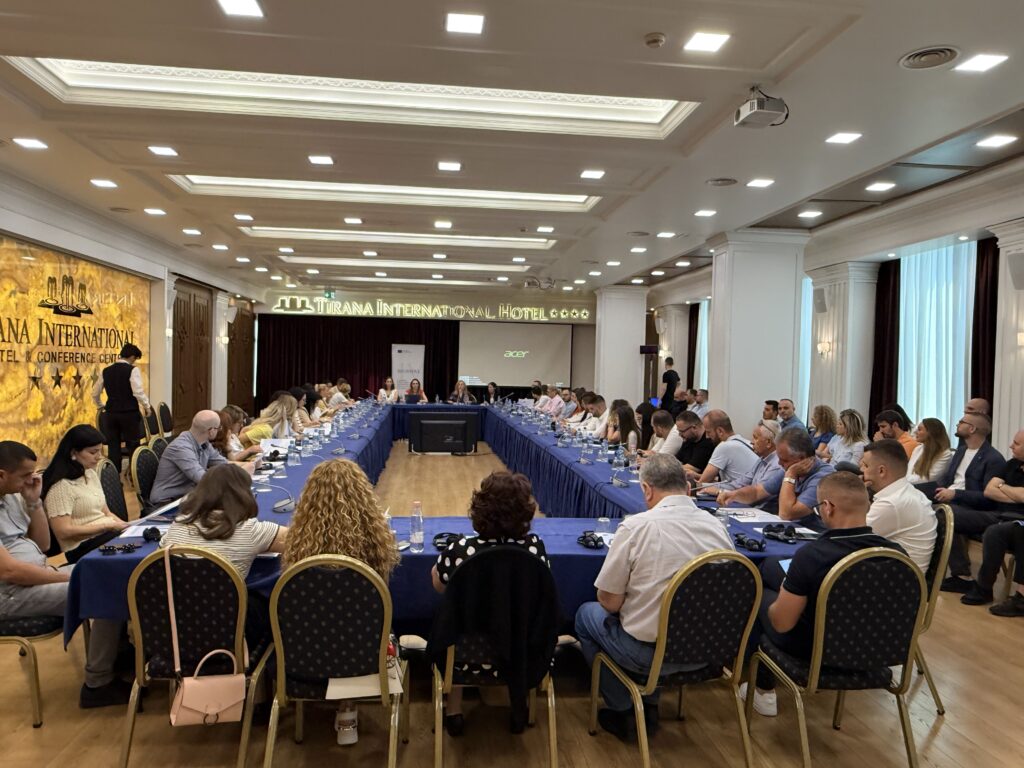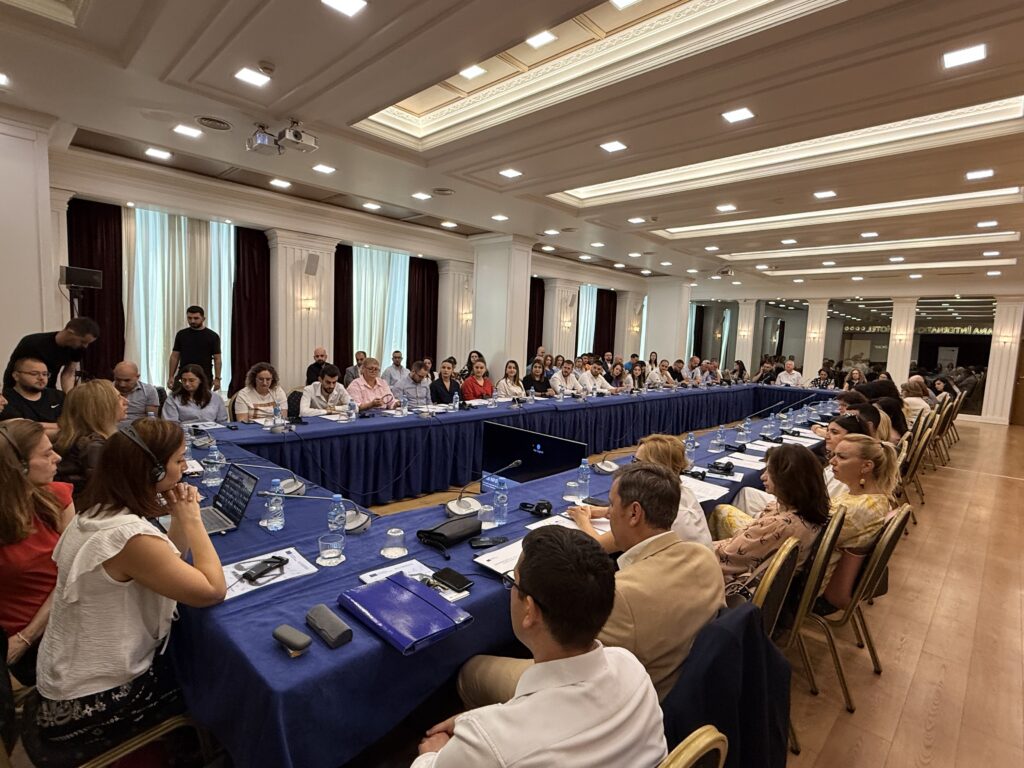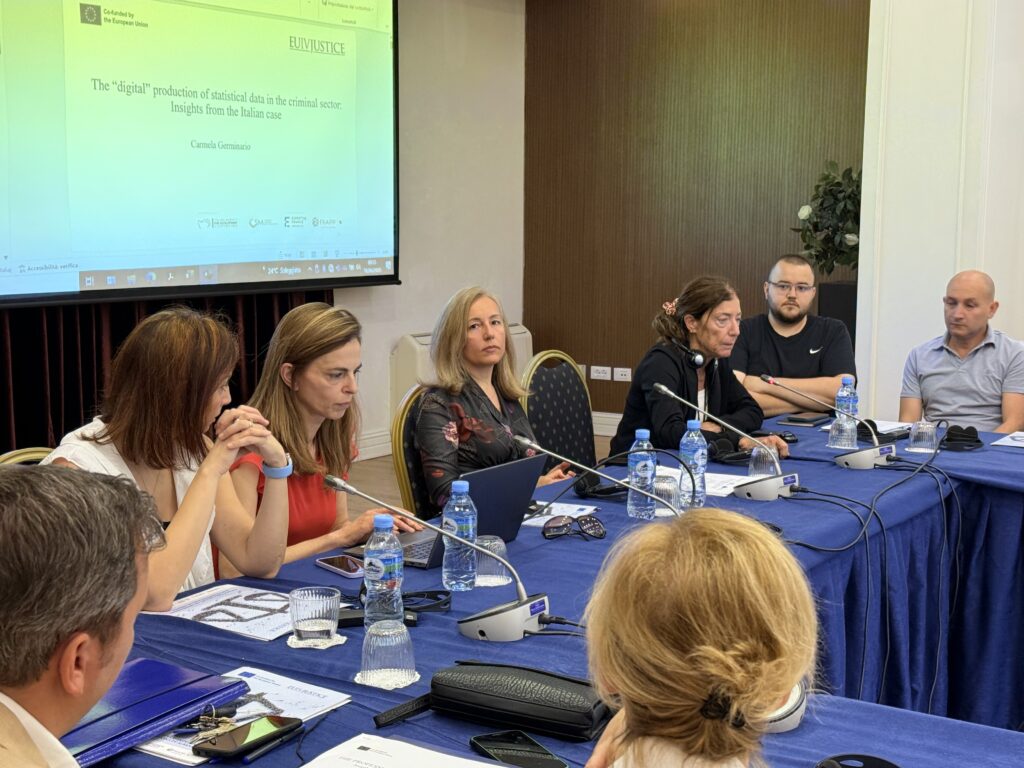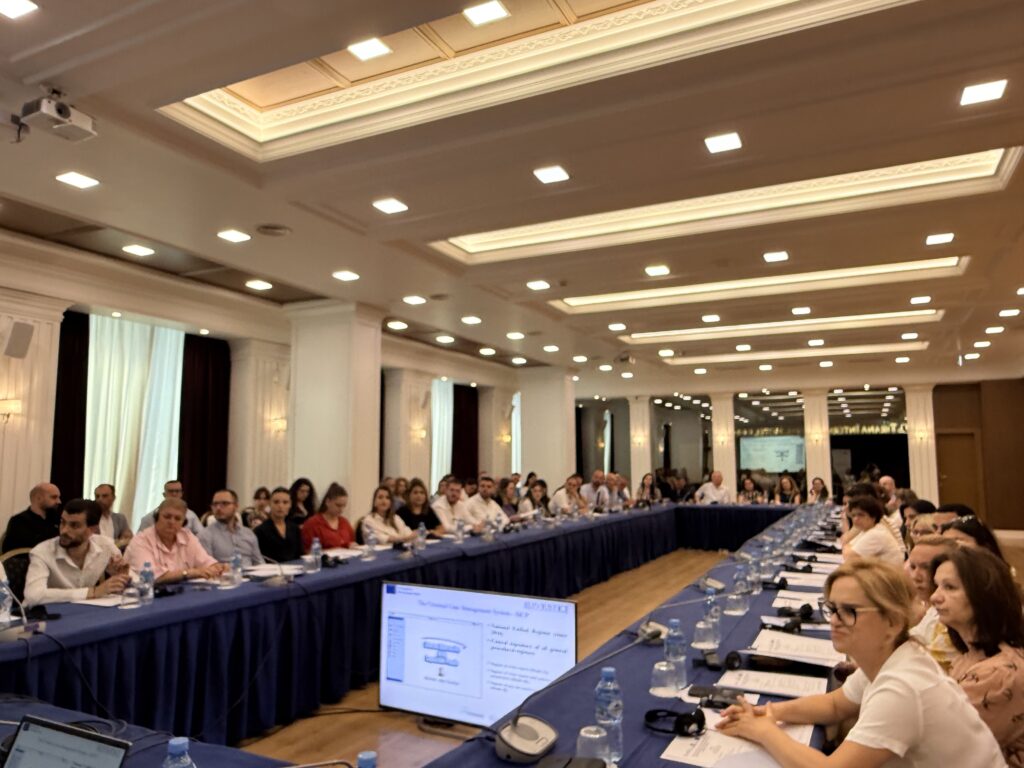- “Abdi Toptani” Street, Torre Drin Building, 10th floor, Tirana, Albania
- info@eu4justice.al
- Call Us : +355 (0) 4 562 0550
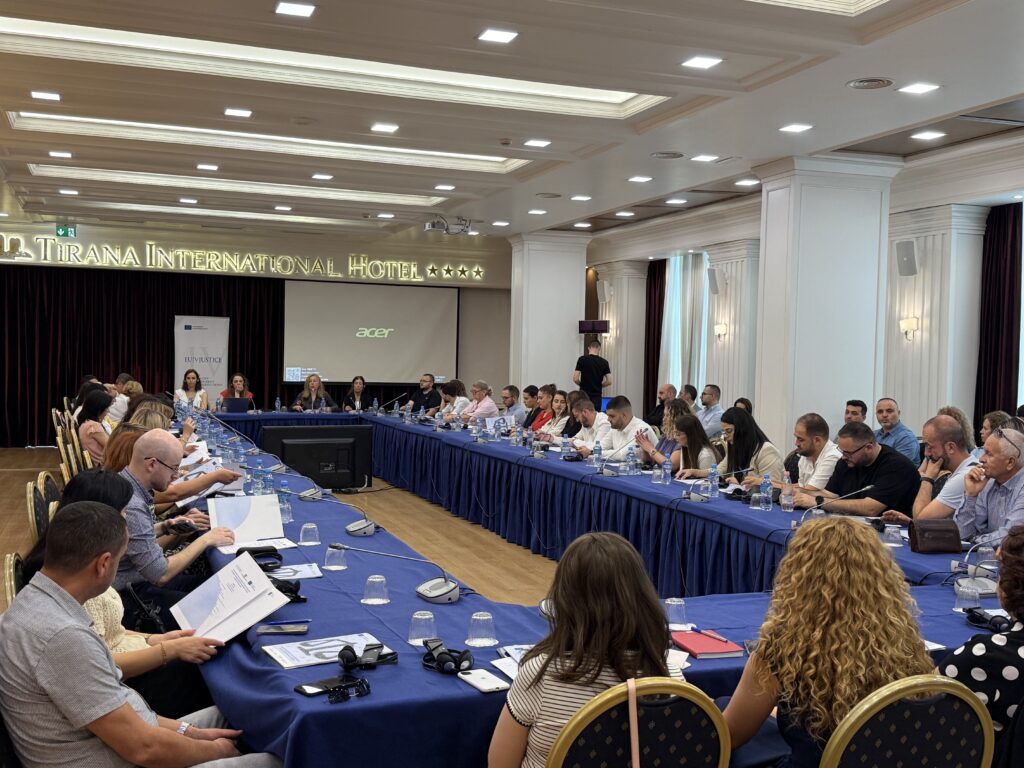
The EU4Justice project continues to play a vital role in supporting the High Prosecutorial Council (HPC) to enhance data quality and accuracy in the evaluation of prosecutors. On 10 June 2025, the project facilitated a pivotal training session titled ‘Data Entry, Processing, and Reporting Regarding Evaluation of Prosecutors’ aimed at refining data management practices. This training targeted key personnel from prosecution offices (PO) who are involved in the evaluation process from the side of POs, including chancellors, secretaries, IT specialists, as well as HPC Evaluation Standing Committee members and legal advisors, and was designed to promote interactive participation through practical approaches, discussions, and concrete examples.
The first session, conducted by two short-term experts of the Project, centred on analysing the Italian framework, specifically focusing on professional evaluation criteria for magistrates. It included presentations on data validation and correction methodologies and explored data quality control techniques adaptable to the Albanian context. The session also identified specific areas warranting deeper investigation to enhance the evaluation process.
The second session, being conducted by two seconded prosecutors as HPC legal advisors, addressed the integrity and reliability of statistical data in ethical and professional performance evaluation of prosecutors, in particular due to the amendments to the HPC Evaluation Regulation in summer 2024. Participants examined the process of statistical data compilation, identifying responsible entities, data sources, and challenges faced in extracting data for inclusion in the 14 tables outlined in Annex No. 2 of the Evaluation Regulation. The session highlighted the purpose of statistical data in evaluations, such as conducting lot draws for file selection, defining quantitative indicators of prosecutors’ work, and monitoring prosecutorial and administrative activities.
Further discussions covered the standardisation of statistical data completion across working groups of POs, and the role of guiding manuals in ensuring consistency. Key quantitative indicators, including compliance with legal deadlines, average investigation times, and productivity, were scrutinised. Lastly, as most crucial items, participants explored efficient methods for identifying statistical data, such as maintaining Excel-based statistical tables for each prosecutor, keeping accompanying records for each file, and adopting electronic formats in a unified manner, as previously recommended by the EU4JUstice Project.
EU4JUSTICE is an EU Contribution Agreement Project implemented by AICS, Expertise France, and FIIAPP. The project’s overall objective is the improvement of the capacity of the independent justice institutions in Albania.


